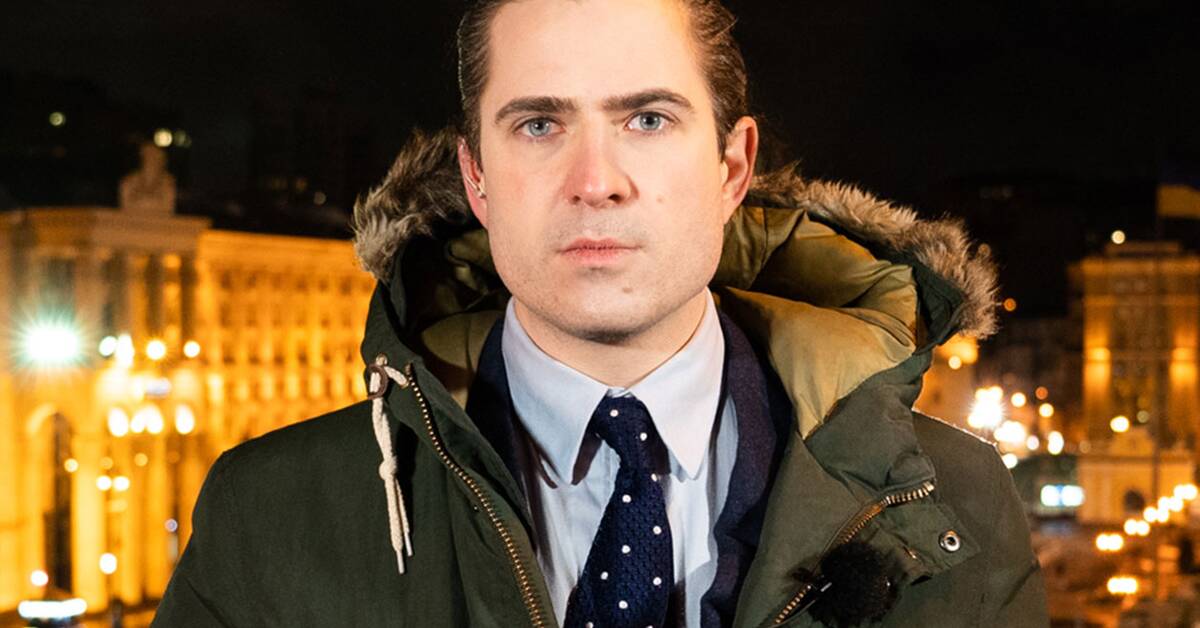Three months have passed since I woke up in the pale dawn, on the night train from Kyiv to Kramatorsk in eastern Ukraine.
The sun crept up the clear sky and on the ground the snow lay white among the bare trees.
The only sound, apart from the train's rhythmic thumping, was the low snoring of the man in the slave below.
Sergei, as he later told me his name was.
My cell phone cast its bluish glow over the dim cabin.
The screen read a single line.
A news release read: "Russian President Vladimir Putin has announced a 'military special operation' to 'demilitarize' and 'denazify' Ukraine."
The train woke up soon.
Passengers gathered in the corridors and cast anxious glances out the windows.
Sergei took a break from Russian television broadcasts.
He firmly emphasized that there was no need to worry.
It would all be over very soon.
Changed city
Once in Kramatorsk, we were met with shock and confusion.
People who in the end could not believe that Russia would really invade for real.
Maybe precisely because the war here has already been going on for eight years.
Today, reality has sunk in.
There is food in the shops but the streets are deserted.
Here and there, destroyed buildings with deep holes in the ground can be seen.
Few of the people who remain want to talk, most who do only talk sweeping about difficulties but admit that they are afraid.
- What can you even hope for?
asks pensioner Albina, who a few days ago saw a missile crash into her courtyard.
All her windows were smashed.
She does not have any money to fix them for, the pension is the equivalent of a thousand kronor a month.
Her children can not get a job, everything has closed.
Albina says she has had two heart attacks since the war began in 2014. And she is, of course, afraid that another missile could come at any moment.
There will probably not be a third heart attack, she says.
Starry night
A short distance from the crater on her farm is the hotel where we stayed the first nights.
It is extinguished and blocked.
We are looking forward to the next one.
On the wall of the reception, clocks hang with time from different corners of the world.
From right to left: London, Paris, Kyiv, [blank], Tokyo.
The penultimate clock shows the same as Kievs, but the sign is screwed down and on the wall only the shadow it has left can be seen.
The one that ruled Moscow, in a region with close historical and cultural ties to Russia.
A region that Russia claims to be fighting to defend.
In the evenings, when darkness has fallen, we broadcast directly from the hotel garden.
The stars shine brightly in the pitch black night.
The curfew has come into force, everyone must turn off their lights to not be seen.
Forget the future
During the past three months, the mood here has shifted from shock to fear.
Even in more spared areas, it is not that far to the front.
Soldiers in roadblocks ask if we have heard anything from the places most recently affected by Russian attacks.
Everyone has heard the speculation that a long and bloody battle awaits the eastern Donbass region.
The other day, President Zelensky said that hundreds of Ukrainian soldiers could die every day.
Three months has been painful enough.
It's best not to think about the future, say several people we spoke to.
Who knows how it will end.
Who knows how long it may take.

